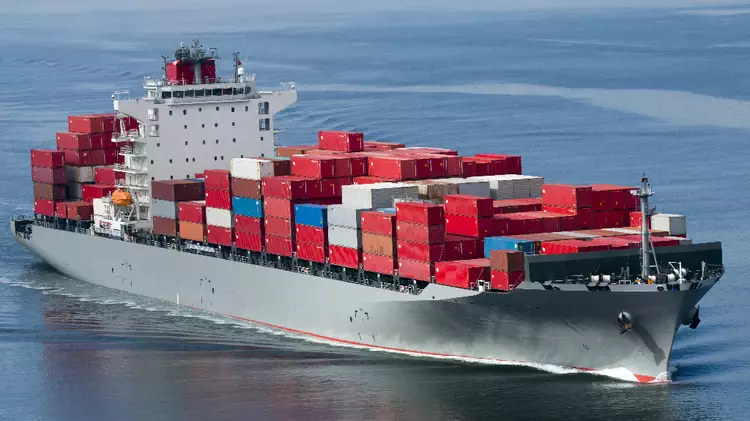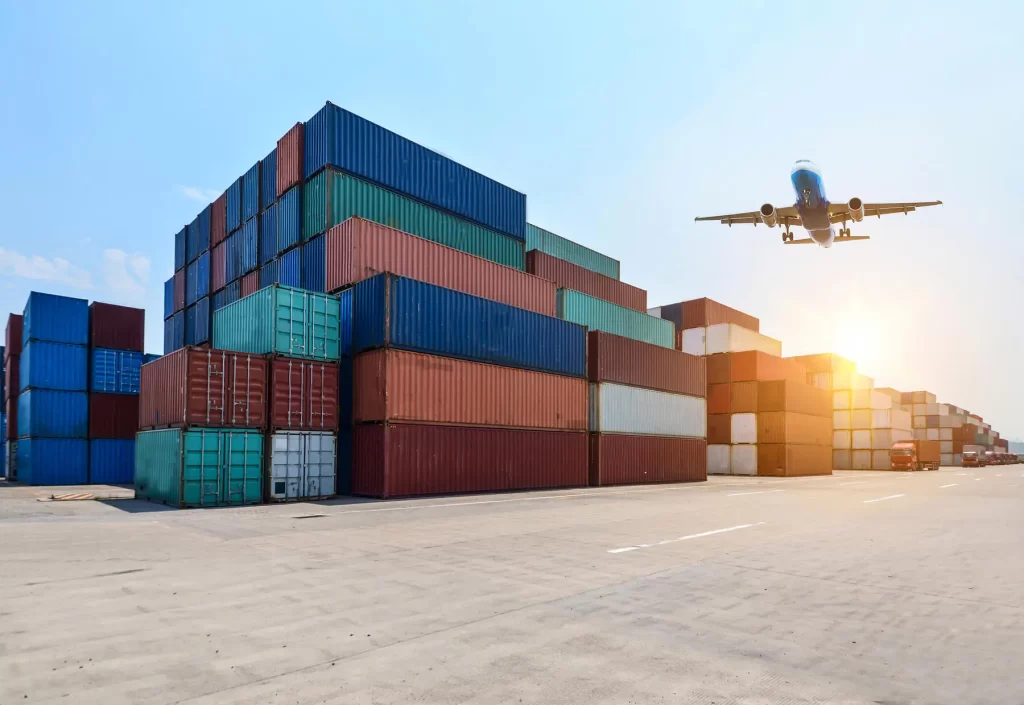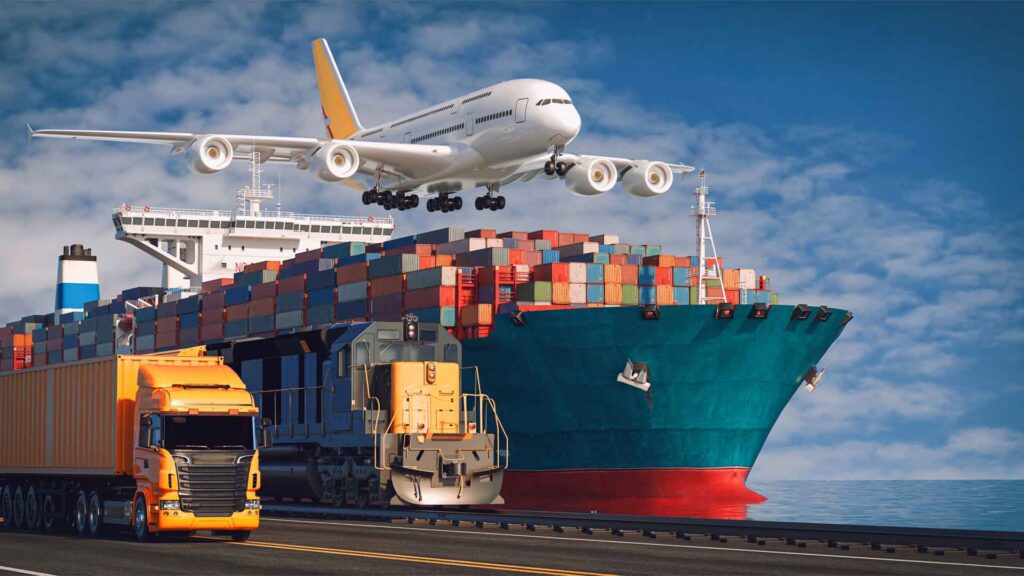- By TOP CHINA FREIGHT
- August 27, 2025
- Shipping
Shipping from China to Lithuania is a critical link for businesses that rely on Chinese manufacturers for cost-effective and high-quality products. Whether you’re an e-commerce seller, a wholesaler, or a company importing industrial goods, understanding the logistics, costs, and best practices for shipping from China to Lithuania is key to staying competitive. This guide provides in-depth information to help you streamline your supply chain, reduce delays, and optimize costs.

1.Shipping Methods from China to Lithuania
Choosing the right transportation method depends on your cargo type, urgency, and budget. Here are the primary options:
Sea Freight

Sea freight is the backbone of global trade and the most affordable way to move bulk goods from China to Lithuania.
Transit Time:
30–40 days
Ideal For:
Heavy goods, raw materials, or large machinery
Key Ports:
Cargo departs from Shanghai, Ningbo, or Shenzhen and typically arrives at the Port of Klaipėda.
Advantages:
Cost-efficient, flexible for oversized cargo, suitable for full (FCL) and less-than-container loads (LCL).
Considerations:
Longer transit times and potential seasonal delays.
Air Freigh

When speed is the priority, air freight is the best solution.
Transit Time:
5–10 days
Ideal For:
Electronics, medical equipment, urgent shipments, or high-value products.
Key Airports:
Goods land at Vilnius International Airport for distribution across Lithuania.
Advantages:
Fast, secure, and ideal for sensitive goods.
Considerations:
Higher cost per kilogram compared to sea or rail.
Rail Freight

Lithuania’s location on the Belt and Road rail network makes this a balanced option for time and cost.
Transit Time:
15–22 days
Ideal For:
Mid-volume shipments that don’t require express delivery.
Advantages:
Reliable schedules, eco-friendly, and faster than sea freight.
Considerations:
Limited space during peak seasons.
Multimodal Transport

For maximum efficiency, businesses often use a combination of transport modes — for example, rail to Europe, followed by truck delivery to Lithuania.
Benefits:
Cost-effective and flexible, especially for regional distribution.
2.Shipping Cost from China to Lithuania
Shipping costs depend on factors like weight, volume, method, and peak season demand. Here’s an overview:
| Method | Transit Time | Cost Estimate | Best Use |
|---|---|---|---|
| Sea Freight (20ft) | 30–40 days | $2,000–$3,500 per container | Bulk cargo, heavy goods |
| Sea Freight (LCL) | 30–40 days | $80–$150 per CBM | Small shipments, shared space |
| Air Freight | 5–10 days | $6–$10 per kg | Urgent or high-value products |
| Rail Freight | 15–22 days | $4,000–$6,000 per container | Mid-volume shipments |
Cost Factors:
- Cargo size and weight
- Chosen incoterms (FOB, CIF, DDP)
- Port fees and customs duties
- Peak season surcharges
3.Customs Clearance in Lithuania
Proper documentation and compliance are critical to avoiding delays and extra charges.
Required Documents:
- Commercial invoice
- Packing list
- Bill of lading or air waybill
- Certificate of origin
- Import permits for restricted items
Tips for Smooth Clearance:
- Use accurate HS codes to avoid misclassification.
- Submit documents in advance to your customs broker.
- Pre-calculate duties and taxes for better budgeting.
4.Key Logistics Hubs in Lithuania
- Port of Klaipėda: Handles most sea freight imports from China.
- Vilnius International Airport: Key hub for air freight and express cargo.
- Kaunas and Vilnius Rail Terminals: Crucial for shipments coming through the China-Europe rail network.
5.Cost-Saving Strategies
Advance bookings secure better rates.
Use LCL services to share container space and reduce costs.
Long-term agreements with carriers lock in stable pricing.
Rail may be cheaper than air for medium-volume shipments.
Ship outside Chinese holidays and Q4 rush periods to avoid surcharges.
6.Challenges in Shipping and How to Solve Them
| Challenge | Solution |
|---|---|
| Seasonal rate surges | Book shipments 2–3 weeks in advance. |
| Customs delays | Work with an experienced customs broker. |
| Damaged cargo | Use professional packaging and insure shipments. |
| Limited rail space | Reserve slots early during peak seasons. |
7.Why Work with a Freight Forwarder

A trusted freight forwarder simplifies logistics by providing:
- Route and method optimization
- Documentation support for smooth customs clearance
- Real-time shipment tracking
- Insurance and risk management solutions
- Cost-saving advice tailored to your business
Conclusion
Efficient shipping from China to Lithuania is crucial for businesses looking to stay competitive in a global marketplace. By selecting the right transport mode, preparing accurate documentation, and working with a reliable freight forwarder, you can minimize costs, prevent delays, and ensure a smooth delivery process. Strategic planning and the right logistics partner will help you scale your imports while maintaining profitability.
Need a Shipping Quote?
If you want expert guidance and peace of mind, our team is ready to assist.
TJ China Freight offers tailored solutions to help businesses of all sizes ship more reliably from China.
FAQs
Q1:How long does shipping from China to Lithuania take?
Sea freight takes around 30–40 days, rail freight takes 15–22 days, and air freight delivers in 5–10 days. The method you choose depends on your urgency and budget.
Q2:What’s the cheapest way to ship to Lithuania?
For large shipments, sea freight is the most affordable. Smaller businesses can save by using LCL (less-than-container-load) services to share container space.
Q3:What documents are needed for customs clearance?
You’ll need a commercial invoice, packing list, bill of lading or air waybill, certificate of origin, and any permits for restricted goods. Having accurate paperwork avoids clearance delays.
Q4:Can I track my shipment from China to Lithuania?
Yes, most freight forwarders and carriers provide real-time tracking for sea, air, and rail shipments. This transparency helps businesses manage inventory and delivery planning.
Q5:Are there restricted items I should be aware of?
Yes, items like chemicals, certain electronics, and hazardous materials may require special permits. Always check Lithuanian import regulations before shipping.
